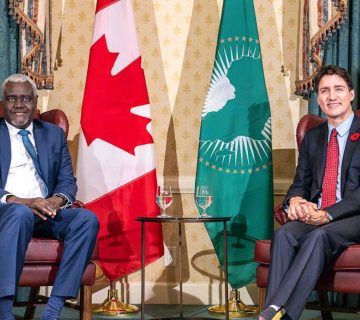On May 9, 2021, the United Nations (UN) announced that around 120 former peacekeepers from Ethiopia are seeking asylum in Sudan. The former peacekeepers were part of the United Nations–African Union Mission in Darfur (UNAMID). The 120 troops are Tigrayan, according to local officials, and requested asylum during the planned drawdown of UNAMID after its mandate expired in December 2020. A similar incident occurred in February 2021 when 15 Tigrayan UN peacekeepers sought asylum in South Sudan. The UN should firmly support these requests for asylum and actively work with host nations to facilitate them. Doing so risks straining UN-Ethiopia relations, which are especially important given Ethiopia’s status as a leading troop contributor to peacekeeping operations. However, this risk is outweighed by the critical importance of peacekeeper confidence in the UN’s ability to protect them in the event of domestic threats to their wellbeing and the relatively low likelihood that Ethiopia would drastically reduce its peacekeeping contributions (given the substantial military and financial benefits the country enjoys from continuing its participation in them).
The Tigray region is currently experiencing a deadly armed conflict between the Tigray People’s Liberation Front and the national government, which has resulted in the deaths of at least 300,000 people and the displacement of 2.5 million. As part of the government’s response to the conflict, Ethiopia is working to remove Tigrayans from key state institutions – including the security sector. Over the course of the conflict in Tigray, the government was reportedly able to purge Tigrayans from the national government by using widespread and sometimes arbitrary detentions (Abiy’s administration hotly disputes this, despite strong evidence). At the beginning of the conflict, over 17,000 Tigrayans served in the national military. The majority of these troops have likely been detained, according to the head of the Institute for Peace and Security Studies at Addis Ababa University. Many of the ethnic Tigrayan troops being detained served in non-combat roles (medical fields, communications, etc.). Some detained troops have been prevented from contacting private lawyers and their families.
Ethnic Tigrayan UN peacekeepers, which are also members of the Ethiopian military, have not been spared this treatment either. In November 2020, Foreign Policy Magazine reported that the Ethiopian government was rounding up Tigrayan members of UN and AU peacekeeping missions and sending them back to Addis Ababa. Internal UN documents identified in the report said that the Tigrayan peacekeepers returning to Ethiopia may be tortured or even executed.
The asylum requests of ethnic Tigrayan UN peacekeepers and the UN’s response have serious implications for current and future peacekeeping operations. As of late March 2021, Ethiopia is the third-largest personnel contributor to UN peacekeeping operations, providing a total of over 6,000 troops to UNISFA (in Abyei), UNMISS (in South Sudan), and UNAMID (in Darfur, Sudan). It also has a peacekeeping presence in Somalia as part of AMISOM. Given Ethiopia’s status as a leading troop contributor, having a solid working relationship with the country is very important to the UN. Supporting the asylum requests of the Tigrayan UN peacekeepers risks damaging that relationship, potentially reducing the number of troops available for critical peacekeeping operations throughout the region. If the asylum requests are successful, there will likely be further requests from Tigrayan UN personnel (both peacekeepers and staff). This would put further strain on the UN-Ethiopia relationship.
However, despite the potential negative impact, the UN has an obligation to protect the men and women serving as peacekeepers in its various missions, including ethnic Tigrayans. This ‘duty of care’ is not simply an ideal, it also has practical utility. Many of the UN’s troop-contributing countries (e.g. Chad and Burkina Faso) may experience similar domestic unrest while conducting peacekeeping operations. It is essential for morale and cohesion that those peacekeepers know they can rely on the UN to protect them in case of threats to their wellbeing at home. Additionally, the likelihood that Ethiopia would take action to drastically reduce its troop contributions in response to UN support for Tigrayan peacekeepers’ asylum requests is low. Troop contributing countries like Ethiopia enjoy significant benefits from participating in peacekeeping operations that outweigh the perceived security threat of having some ethnic Tigrayans under asylum in neighboring countries. Participation in UN peacekeeping operations facilitates increases in military professionalism, prestige, and force modernization. It also provides substantial financial incentives at the organizational level (e.g. security assistance) and at the individual level (e.g. salaries).
Joseph Hartung is a Researcher at the HORN Institute for Strategic Studies.
Photo: Ethiopian soldier Tesfaye Asehe, with the African Union-United Nations Hybrid Operation in Darfur (UNAMID), during a patrol in a camp for internally displaced persons in Gereida, South Darfur, in July 2012 (Photo Credit: UN Photo)
The contents of this article are copyright of © The HORN Institute 2022. All rights reserved. Any redistribution or reproduction of part or all of the contents in any form and for whatever reason is prohibited. You may use the content of this article for personal reasons, but acknowledge the website as the source of the material.



